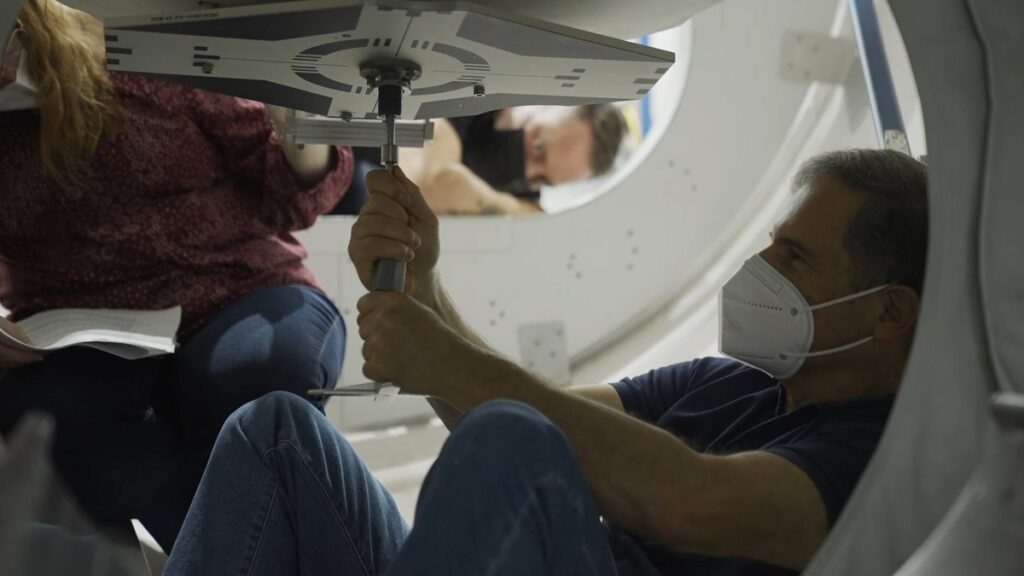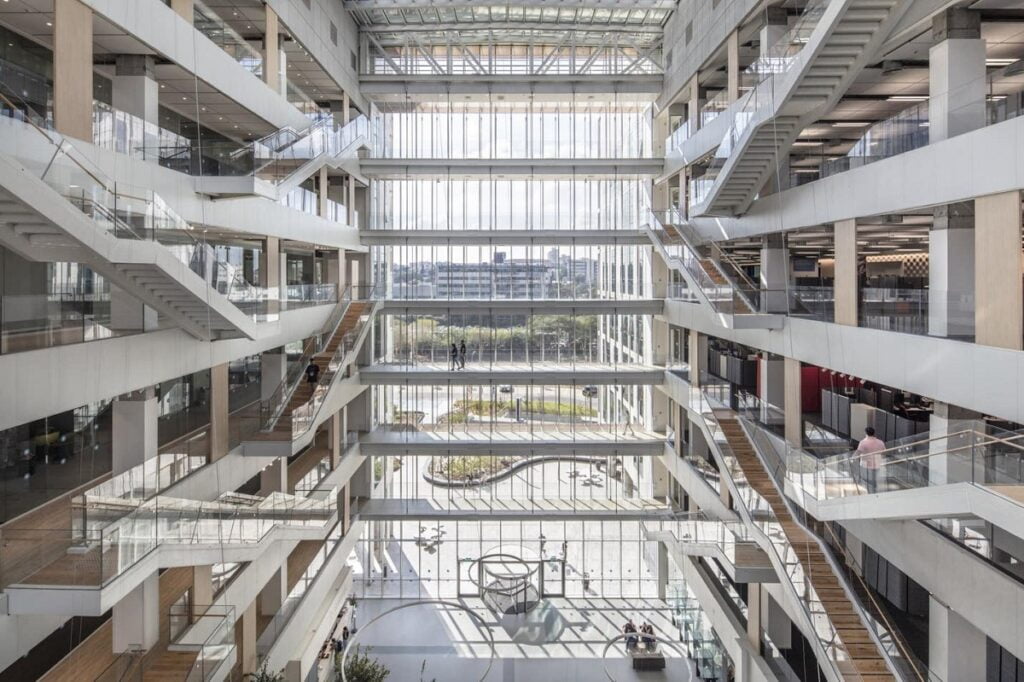Israel’s Aleph Farms has already had an exciting start to the New Year. Nearly two months into 2022, the Israeli cultivated meat firm announced its space program, Aleph Zero, would officially be heading to space as one of a number of experiments dealing with food and agriculture on the historic Rakia Mission launching March 31, 2022. The mission is led by the Ramon Foundation and the Israeli Space Agency.
The company also just shared in a blog post that it has moved into a brand new 65,000 square foot silver-level LEED (Leadership in Energy and Environmental Design) facility in the Stratasys building Rehovot as the site for its pilot production facility.
The company said the facility has helped it launch pilot production for cultured steaks and increase its operation “sixfold.” Aleph Farms will build a state-of-the-art R&D center to further its biotechnical capabilities and open a community center to spread crucial information regarding the future of food production.

“More than merely expanding our footprint, this move prepares us for a busy year ahead, as we work toward the global commercialization of our cultivated steak,” the company said in the post.
“We’re executing our plans for large-scale global commercialization of cultivated beef steaks and portfolio expansion into new types of animal protein,” Aleph Farms CEO and co-founder Didier Toubia tells NoCamels, “We are scaling-up our manufacturing, growing operations internationally, and expanding our product lines and technology platform ahead of an initial market launch around the end 2022. We’re also currently working with regulatory agencies on our plans for market entry.”
The establishment of this pilot production facility will help the company’s ongoing effort to acquire regulatory approval for its thin-cut cultivated steak and “optimize processes towards their large-scale production facilities which have plans to be built in 2022 through 2024.
“Aleph Farms team is passionate about changing the world around us, one bite at a time,” said Eyal Rivlin, VP of production and operations. “Our new facility enables us to scale our production capabilities and launch limited quantities of our steak around the end of the year, pending regulatory approval. We’ve worked hard to get here, and it is exciting to see the infrastructure that will help bring our vision to life.”
SEE ALSO: Leonardo DiCaprio Invests In Cultivated Meat Startup Aleph Farms
With the acquisition of its new facility, Aleph Farms will also launch a new department, Aleph Frontiers, as “an incubator of innovation” which will generate new ideas for cell-cultured product development. Vice president of R&D and CTO, Dr. Neta Lavon, will serve as Frontiers department head.
“We are committed to driving impact through innovation,” said Dr. Lavon. “This is why we have been hyper-focused on developing the most advanced technology in the cultivated meat industry. Expanding our R&D footprint in this new facility will help us drive exciting new advancements for the field of cultivated animal products.”
Pending regulatory approval, Aleph Farms’ expects its pilot facility to be fully operational by this summer ahead of its initial market launch scheduled around the end of 2022.
Sign up for our free weekly newsletter
SubscribeAleph Farms in space
Aleph Farms’ clean meat cultivated under microgravity conditions was announced as one of 35 experiments given final approval to head to the International Space Station with Israel’s second-ever astronaut Eytan Stibbe as part of the upcoming Rakia mission.

Aleph Farms aims to help with food supply, a problem often found in space travel. The International Space Station receives regular shipments of fresh and packaged food. But astronauts living on Mars won’t be able to receive fresh food, and packing enough for the crew’s entire trip would require a lot of storage in already cramped quarters.
The experiment will “examine the effect of microgravity on two of the basic processes governing meat cultivation: cell proliferation and differentiation,” says Toubia, “During the mission, cellular proliferation is followed by differentiation into different cell types that build muscle tissue, the building block of a cultivated steak.”
“It is very difficult to provide astronauts with quality food and nutrition, with ‘space food’ often seen as a poor substitute,” he adds.
That’s why growing food will be crucial on longer missions farther from home.
“The main challenge in space will be growing meat without gravity. Humans and animals have evolved under the weight of gravity, so their cells have learned how to behave in gravity. Cells act differently in space. And our system will have to be versatile enough to work in space, on the moon, and on Mars, which have varying levels of gravity.”
Aleph Farms’ possible solution is a program that would allow for the production of beef steaks in space. Essentially, it would use a sort of 3D printing to grow the meat from cells, not an actual animal.

“We first tested our technology on the International Space Station in 2019. Through a collaboration with Russia-based 3D Bioprinting Solutions, Aleph Farms launched cow cells into space and then used the Russian company’s 3D bio-printer to make the cells interact with one another and form muscle tissues,” Toubia explains, “The upcoming experiment on the Axiom Space mission will go a step further by proving Aleph can grow and multiply cells in microgravity and then differentiate them into a steak’s various muscle and fat components.”
Ultimately, Aleph is working on a more robust system that would allow astronauts to fully grow and cook their own steaks. Aleph was recently among the Phase 1 winners of NASA’s Deep Space Food Challenge and plans to compete in Phase 2, where we will develop a kitchen demo for NASA’s Johnson Space Center that could deliver fresh food for a three-year mission.
Related posts

Editors’ & Readers’ Choice: 10 Favorite NoCamels Articles

Forward Facing: What Does The Future Hold For Israeli High-Tech?

Impact Innovation: Israeli Startups That Could Shape Our Future




Facebook comments